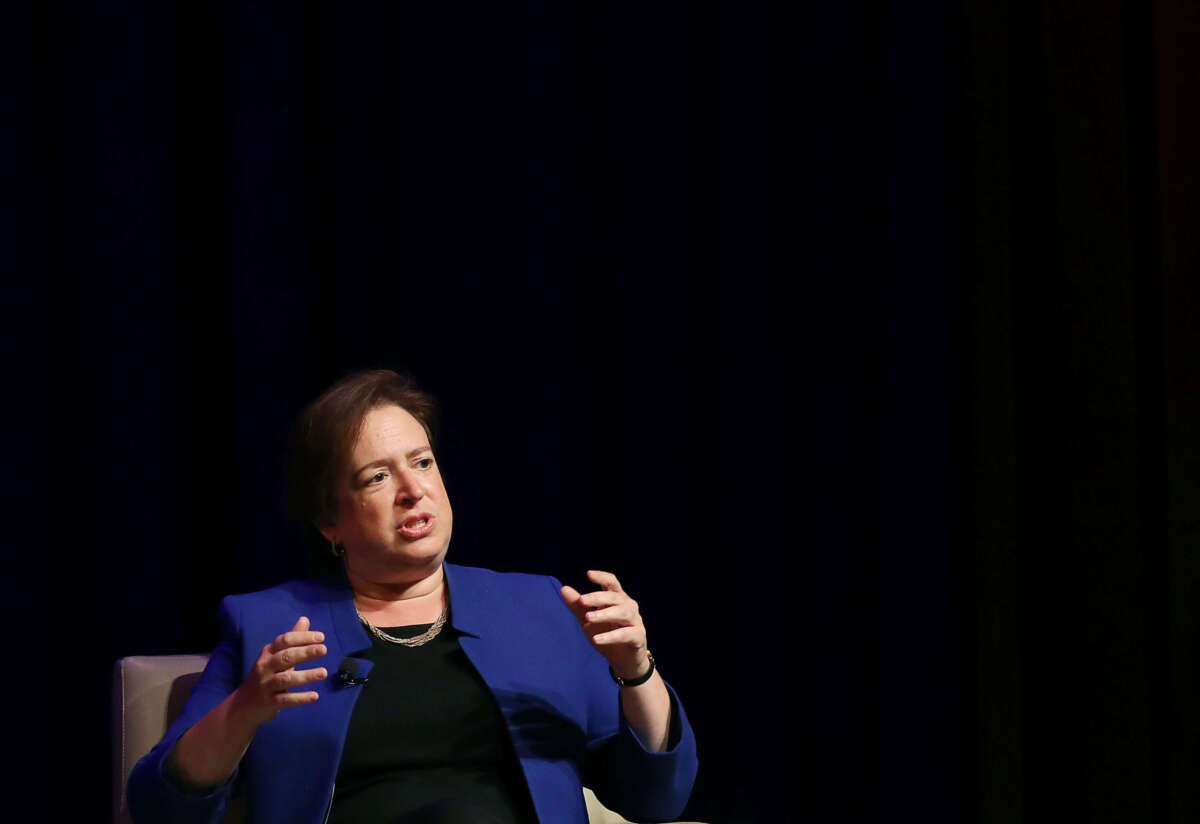Support justice-driven, accurate and transparent news — make a quick donation to Truthout today!
On Thursday, Supreme Court Associate Justice Elena Kagan signaled support for the creation of an independent body to oversee the High Court’s ethics rules.
Currently, the Court’s rules, which were established last year, are only enforced by the justices themselves. The Court is currently embroiled in a number of ethics issues, including Justice Clarence Thomas accepting millions of dollars in gifts from a conservative billionaire and Justice Samuel Alito flying flags signaling support for Donald Trump and Christian nationalists.
Despite clear conflicts of interest, neither of the two justices have agreed to recuse themselves from key cases where their biases could influence them.
Speaking at a judicial conference in Sacramento, California, Kagan said that the Supreme Court should have an enforcement mechanism of some kind. She then proposed that Chief Justice John Roberts could form “some sort of committee of highly respected judges with a great deal of experience and a reputation for fairness.”
Kagan praised the content of the ethics rules created last fall but noted that the lack of an enforcement mechanism was troubling.
Rules usually have enforcement mechanisms attached to them, and this one, this set of rules, does not. … However hard it is, we could and should try to figure out some mechanism for doing this.
Kagan is the first justice of the Supreme Court to say that an independent enforcement mechanism is needed. Her doing so comes amid news this month that President Joe Biden is set to propose a series of reforms to the Court, including tenure limits for justices and enforceable ethics rules, both of which are supported by most Americans.
Kagan’s proposal sidesteps complaints from Alito, made earlier this month, over the idea that Congress should better regulate the Court.
“No provision in the Constitution gives them the authority to regulate the Supreme Court — period,” Alito previously said, a notion that many legal scholars have contested.
Kagan’s words were praised by legal experts and lawmakers in favor of reform on social media.
“Ethics rules without an enforcement mechanism are just empty words,” said Meredith McGehee, policy director for the Campaign Legal Center, responding to news of Kagan’s views.
“I applaud this move by Justice Kagan. The Supreme Court has demonstrated that it cannot police itself,” said Rep. Mikie Sherrill (D-New Jersey). Within her post on X, Sherrill also urged the passage of a bill she’s sponsoring, the Supreme Court Ethics and Investigations Act, which would codify enforcement mechanisms.
“The time for Court reform is now!” Sherrill added.
Gabe Roth, executive director for Fix the Court, an organization dedicated to enacting such reforms, responded positively to Kagan’s statement.
“For any Supreme Court ethics framework to have any teeth, someone must hold the justices to it, and for what should be obvious reasons, it can’t be the justices themselves. … Given that it was Justice Kagan who talked about the need for a SCOTUS ethics code well before her peers, her vision on the topic should not be dismissed,” Roth said.
Matching Opportunity Extended: Please support Truthout today!
Our end-of-year fundraiser is over, but our donation matching opportunity has been extended! All donations to Truthout will be matched dollar for dollar for a limited time.
Your one-time gift today will be matched immediately. Your monthly donation will be matched for the whole first year, doubling your impact.
This matching gift comes at a critical time. As Trump attempts to silence dissenting voices and oppositional nonprofits, reader support is our best defense against the right-wing agenda.
Help Truthout confront Trump’s fascism in 2026, and have your donation matched now!
